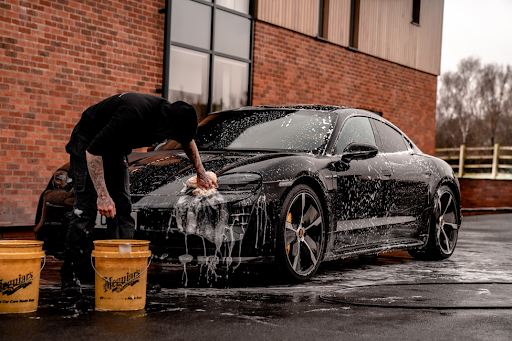 When it comes to maintaining the beauty and longevity of your cherished vehicle, the significance of proper car bodywork care cannot be overstated. Your car’s exterior is a protective shield that keeps the internal components safe from the harsh elements of the road. Regular maintenance and care can extend the life of your car’s bodywork, keeping it looking great and free from corrosion or damage. That includes leveraging Paint Protection Film Services in Dallas to shield your vehicle from the rigors of the road and maintain its allure for years to come. From regular maintenance routines to advanced protective measures, below are key tips to keep your car’s bodywork in top-notch condition:
When it comes to maintaining the beauty and longevity of your cherished vehicle, the significance of proper car bodywork care cannot be overstated. Your car’s exterior is a protective shield that keeps the internal components safe from the harsh elements of the road. Regular maintenance and care can extend the life of your car’s bodywork, keeping it looking great and free from corrosion or damage. That includes leveraging Paint Protection Film Services in Dallas to shield your vehicle from the rigors of the road and maintain its allure for years to come. From regular maintenance routines to advanced protective measures, below are key tips to keep your car’s bodywork in top-notch condition:
1. Regular Washing and Cleaning
Regular washing and cleaning is one of the simplest yet most effective ways to maintain your car’s bodywork. If your vehicle exterior is left unattended, environmental contaminants such as dirt, dust, tree sap, bird droppings, and road salt can harm the paint and finish, leading to deterioration over time.
Ideally, you should wash your car at least once a week, especially during the winter months when road salt and grime accumulate quickly. In addition to washing regularly, use washing techniques like high-quality car wash soap, a soft sponge or microfiber mitt, and clean lukewarm water. Begin by rinsing the car thoroughly to remove loose dirt. Then, wash the car from top to bottom, working in small sections. Rinse the car thoroughly and dry it with a clean microfiber cloth or chamois to prevent water spots.
After washing, consider applying a good quality car wax or sealant to protect the paint from UV rays and contaminants. Waxing every three to four months is generally recommended, but you can do it more often if your car is exposed to harsh conditions.
2. Regular Inspections and Maintenance
To catch any issues with your car’s bodywork before they escalate into more significant problems, regular inspections and maintenance are essential. Small paint chips and scratches are not only unsightly but can also lead to rust if left untreated. Use touch-up paint to cover these imperfections promptly. For large or deep scratches, consult a professional.
In addition to small paint chips, rust spots are a major enemy of your car’s bodywork. In areas prone to moisture and road salt exposure, check for rust spots and address them immediately by sanding, priming, and repainting the affected area.
Another thing to check is minor dents and dings. These can be repaired using techniques like paintless dent repair (PDR). Consult a body shop for professional repair for larger dents. Finally, vulnerable areas such as the underside of your car and wheel wells require rustproofing or applying corrosion-resistant coatings. Regularly check for any damage or wear on these coatings.
3. Protection from Environmental Hazards
Protecting your car’s bodywork from environmental hazards such as the sun’s UV can significantly extend its lifespan. If possible, park your car in a shaded area or a garage. Prolonged exposure to direct sunlight can fade and damage the paint and clear coat.
Second, consider applying protective films, like clear bras, to high-impact areas such as the front bumper and hood. They offer an extra layer of protection against stone chips and road debris. Finally, during winter, use snow covers or car blankets to shield your vehicle from snow, ice, and salt. In hot weather, use sunshades for the windshield and windows to reduce interior heat and UV damage.
4. Professional Detailing
While regular washing and maintenance are crucial, professional detailing can take your car’s bodywork care to the next level. Professional detailing services include cleaning and conditioning the seats, dashboard, carpets, and headliner.
Apart from interior detailing, exterior detailing is also essential; it involves deep cleaning, polishing, and waxing to remove contaminants, restore shine, and protect the paint. Attention to the wheels, tires, and trim is also given by detailers.
For cars with significant paint imperfections, professional detailers can perform paint correction, which involves polishing to remove swirl marks, fine scratches, and oxidation. The process restores the paint’s clarity and shine.
Endnote
Taking care of your car’s bodywork is about preserving the value and longevity of your vehicle. By following the above points, you can ensure that your car’s bodywork remains in excellent condition for years.










